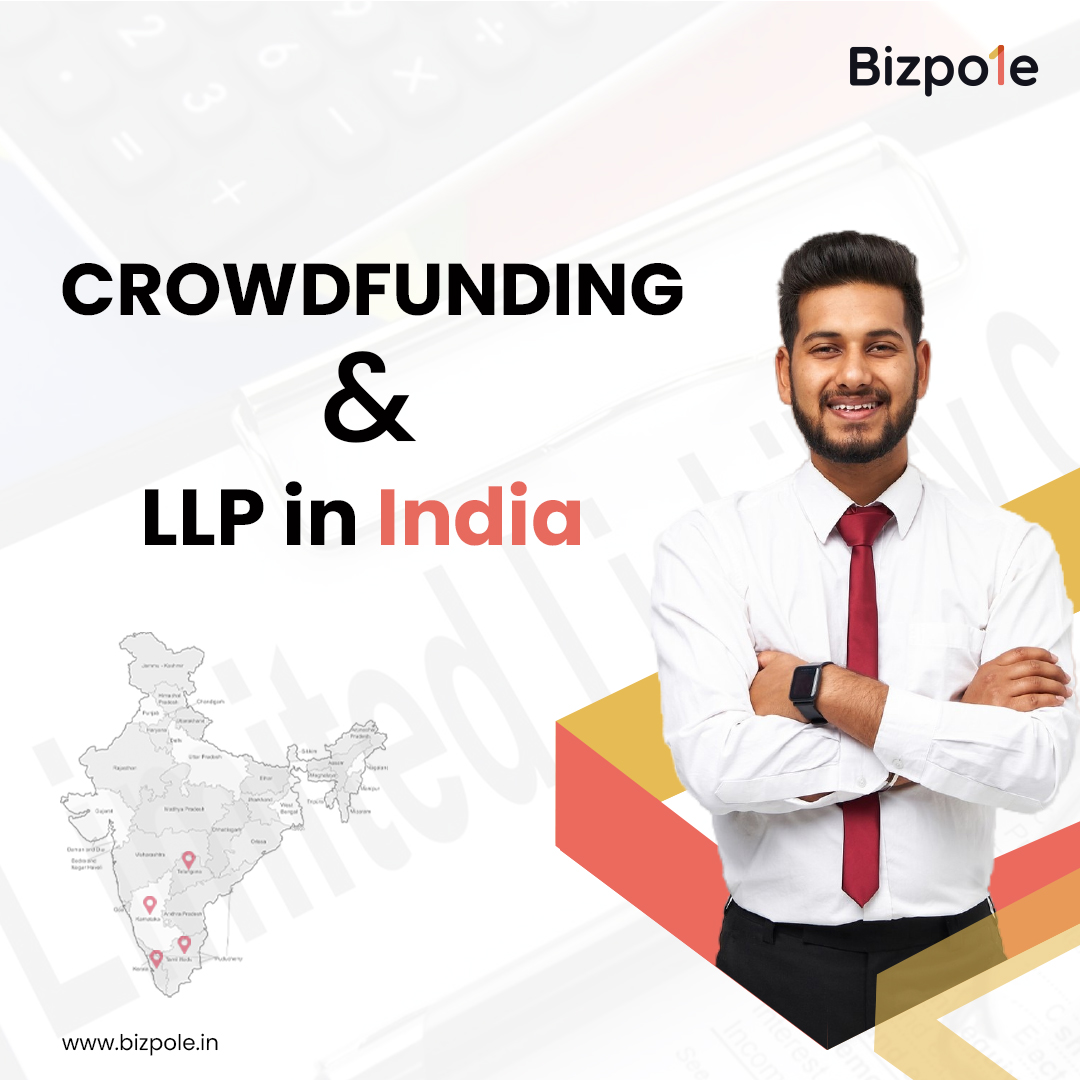Limited liability partnerships (LLPs) and crowdfunding have gained significant traction in India, providing small business owners and entrepreneurs with innovative ways to set up their enterprises and generate income. This essay looks at the intricacies of limited liability companies (LLPs), and crowdfunding, and how these two business models could complement one another in India’s dynamic economy.
Understanding LLPs in India
What is an LLP?
A Limited Liability Partnership (LLP) is a hybrid business form that combines the benefits of a company and a partnership. An LLP provides the flexibility of a partnership while limiting a partner’s responsibility to the amount of their contribution. The Limited Liability Partnership Act of 2008 brought it to India. LLPs are therefore a popular option for specialists, new businesses, and small corporations.
Key Features of LLP
- Limited Responsibility: Partners’ liability is limited to the amount they have mutually agreed upon to protect personal assets from business liabilities.
- Distinct Legal Entity: An LLP is a special kind of legal entity that exists apart from its members. It is capable of suing on its behalf and with its assets.
- Flexibility in Management: Partners have fewer compliance requirements and greater latitude to manage the LLP as they see fit, in contrast to corporations.
- No Minimum Capital Requirement: Unlike private limited companies, there is no minimum capital required to form an LLP.
Legal and Compliance Requirements
In India, LLPs are governed by the LLP Act of 2008. They must follow other legal requirements, such as filing taxes, maintaining books of accounts, and filing annual returns. The Registrar of Companies (RoC) oversees the registration and regulation of LLPs.
The Synergy Between Crowdfunding and LLPs
Using Crowdfunding to Raise Capital in an LLP Structure
Crowdfunding is a tool that LLPs, particularly those in the startup ecosystem, can use to raise money. For instance, an LLP involved in product development can raise money without compromising equity or taking on debt by using reward-based crowdfunding to pre-sell products. Additionally, LLPs may now access a worldwide audience because of the growth of digital platforms, which improves their prospects of raising money.
LLPs and Crowdfunding for Equity
Even if private limited companies are more likely to adopt equity crowdfunding because of SEBI regulations, LLPs might nevertheless benefit indirectly from it. For example, partners in an LLP may use equity crowdfunding to collect capital for a different firm and then transfer the funds to the LLP as an investment or loan to assure compliance with regulatory requirements.
Challenges and Considerations
Crowdfunding presents LLPs with a fantastic opportunity, but not without its pitfalls. Following the rules can be challenging, especially when it comes to equity- and debt-based crowdfunding. In addition, meeting investor expectations and delivering on promised incentives or returns requires meticulous planning and execution.
The Future of Crowdfunding and LLPs in India
The startup-friendly climate in India is predicted to keep expanding, which is encouraging for LLPs and crowdfunding in the long run. It is projected that technological advancements will simplify the usage of crowdfunding platforms, attracting more businesses to look into this kind of fundraising. In addition, the Indian government’s emphasis on entrepreneurship development through initiatives like Startup India likely encourages the use of limited liability corporations (LLPs) as the preferred business structure. The development of regulatory frameworks might lead to greater clarity and support for equity-based crowdfunding, which would make it possible for startups and small businesses to prosper inside limited liability companies (LLPs).
Understanding Crowdfunding in India
What is Crowdfunding?
Crowdfunding is one method of raising funds through collective efforts; it is typically carried out
on online platforms. It helps start-ups, small businesses, and entrepreneurs to gather money from
a lot of individuals, usually in the form of small donations. The concept connects with potential
funders or investors by utilizing social media and online networks.
Types of Crowdfunding
In India, crowdfunding primarily falls into four categories:
● Donation-based Crowdfunding: In this kind of crowdfunding, participants donate
money to a cause or project without expecting to make money. This kind is frequently
utilized for social purposes, community-driven projects, and disaster relief operations.
● Reward-based Crowdfunding: Contributors receive a prize, usually a good or service,
in exchange for their support. This is a common method used by startups to pre-sell their
products.
● Equity-based Crowdfunding: Investors receive stock interests in the company in
exchange for their money. Applicable to companies seeking to raise substantial sums of
money, this is overseen by the Securities and Exchange Board of India (SEBI).
● Debt-based Crowdfunding: Also known as peer-to-peer (P2P) lending, this kind of
crowdsourcing involves borrowing money from multiple lenders, each of whom gets
interest.



















